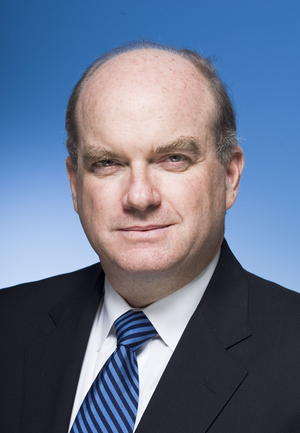Quick — name the Harvard-educated financial executive who went on to dismiss tens of millions of people as freeloaders who think government should take care of them.
No, it’s not just presidential candidate Mitt Romney, whose infamous comments about the 47% of the United States “who believe that they are entitled to health care, to food, to housing, to you-name-it” led to widespread outrage.

Pedro Burelli is a leading Venezuelan opposition activist based in Washington, D.C., who once served as the head of Latin America for the J.P.Morgan Capital Corporation—J.P. Morgan’s main investment arm. He made the following comments just days after the October 7 reelection of Hugo Chávez over opposition candidate Henrique Capriles:
The country doesn't want an ideological debate. The country wants gasoline that’s free. Okay? Nobody wants to hear that people have to work and they have to sacrifice, and sure as hell no candidate is going to risk his election by standing up and saying those things.
...
A population that really, truly, honestly wants to get a lot of money without work—it’s a very difficult campaign proposition.
Unlike Romney’s remarks disparaging the 47%, which were made in private to a coterie of wealthy donors, Burelli offered his analysis on 100% of Venezuelans at a free event, open to the public, and hosted by one of the most prominent think tanks in Washington, D.C.
Along with two other “experts,” Burelli spoke at an October 10 panel discussion convened by Center for Strategic and International Studies (CSIS) with a title that seemed to evince total bewilderment: “Venezuela’s Election: What Just Happened?” (Audio can be downloaded here; Burelli criticizes the Venezuelan 100% at 38:10 and 39:30.)
CSIS, which has $73.5 million in net assets and employs 220 full-time staff, is a prestigious and wholly bipartisan Beltway institution, chaired by former U.S. Senator Sam Nunn (D-GA). Its stated aim has been “finding ways to sustain American prominence and prosperity as a force for good in the world” since 1962. The organization’s analysts are regularly cited as authorities by The New York Times, CNN, The Washington Post, and other large media groups; its stable of experts includes former policymakers like Zbigniew Brzezinski, Henry Kissinger, and Brent Scowcroft.
So the CSIS event on Venezuela serves as an example of the general ineptitude and dishonesty of the Washington establishment from which the media take their cues. The “What Just Happened?” panel was moderated by Stephen Johnson, the director of CSIS’s America’s Program and former senior analyst at the right-wing Heritage Foundation; the discussion began with an overview of Venezuela’s electoral processes by Leopoldo Martinez. Johnson, who had purported to worry over the Venezuela’s democratic institutions in the lead-up to the election, introduced Martinez to the event’s audience but neglected to mention that Martinez, ostensibly a democratic reformer, was none other than the former finance minister for the 2002 coup government of Venezuelan business magnate Pedro Carmona.
Burelli, who spoke after Martinez, apparently was not chastened by his spectacularly incorrect predictions for the Venezuelan election. He had written an October 4 piece called “Venezuela: The Triumph of Capriles Radonski is Very Feasible!” in which he outlined three scenarios: Chávez would prevail by two percentage points or less over Capriles; Capriles would beat Chávez by the same margin; or, most outlandishly, Capriles would defeat Chávez by more than six percentage points. All of this was, of course, completely at odds with months of polling data.
The cluelessness on display at the event illustrates the extent to which double standards affect U.S. foreign policy considerations. CSIS provided a “Venezuelan perspective” to its U.S. audience by relying on a coup-regime official, and a financial executive who couldn’t hide his scorn for Venezuela’s popular social programs (which provide free health care and education, for example), or for Venezuela’s people in general. Such figures would be correctly described as reactionaries in a domestic context. But for a multimillion-dollar, bipartisan think tank dealing with the topic of Venezuela, these men pass for serious experts.
Keane Bhatt is an activist in Washington, D.C. He has worked in the United States and Latin America on a variety of campaigns related to community development and social justice. His analyses and opinions have appeared in a range of outlets, including NPR, The Nation, The St. Petersburg Times and CNN En Español. He is the author of the NACLA blog “Manufacturing Contempt,” which critically analyzes the U.S. press and its portrayal of the hemisphere. Follow his blog on Twitter @KeaneBhatt.

